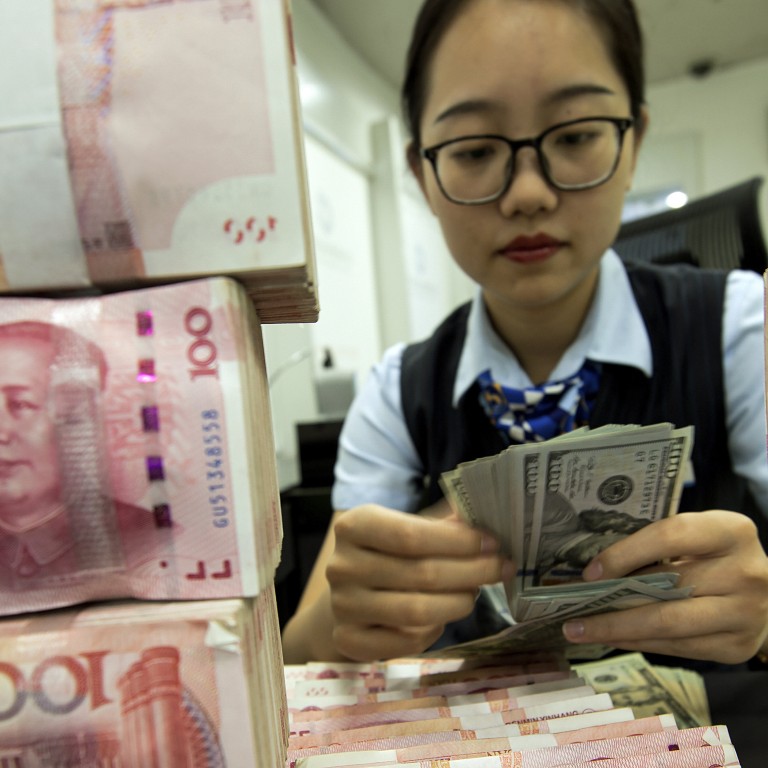
China’s yuan ‘trading like a safe haven currency’ as Ukraine crisis roils markets
- The yuan is still hovering near a four-year high after Russian leader Vladimir Putin ordered an operation to demilitarise Ukraine.
- The yuan dropped on news of the attack, but its decline against the US dollar has been more muted than peers.
The yuan is standing out for its resilience as global markets reel from Russia’s attack on targets across Ukraine.
“Yuan has been trading like a safe haven currency during the Ukraine crisis,” said Khoon Goh, head of Asia research at Australia & New Zealand Banking Group in Singapore.
“Prospects for further easing should see growth recover, hence keeping Chinese equities resilient even as US equities have sold off.”
The yuan’s correlation to global volatility dropped to a three-year low earlier this week, underlying a haven status partly due to efforts by Chinese policymakers to ease to support economic growth.
The nation’s sovereign bonds, which lured a record 575.6 billion yuan (US$91 billion) in inflows last year, have also been touted as potential alternatives to US Treasuries.
A local Chinese news report on Thursday cited analysts saying that low volatility and stable purchasing power have made yuan assets more attractive and that the currency would rally to 6.3 per US dollar on the risk-off sentiment.
While the yuan dropped on news of the attack, its decline against the US dollar has been more muted than peers.
‘Greater’ US-China monetary policy divergence will aid yuan stability
“Onshore corporates have large holdings of foreign currency receipts due to trade surplus position in recent years,” said Jonathan Cavenagh, senior markets strategist, Informa Global Markets. “That leaves it somewhat immune to outside risk aversion.”
To be sure, there is a danger that the yuan becomes too strong for the People’s Bank of China (PBOC), which may prompt intervention.
That threat undermines the likelihood of the currency becoming a reliable haven and China’s partial capital account liberalisation suggests its status remains a “work-in-progress,” according to Commmonwealth Bank of Australia.
China’s economy has been a little unstable recently, but the authorities have shown great determination to stabilise it since the end of last year
“China’s economy has been a little unstable recently, but the authorities have shown great determination to stabilise it since the end of last year,” according to Huang Yiping, Peking University economics professor and former member of the PBOC’s monetary policy committee.
“Investors may think that yuan assets including Chinese government bonds can have some safe-haven functions. Although, of course you can’t compare it with the US dollar.”

